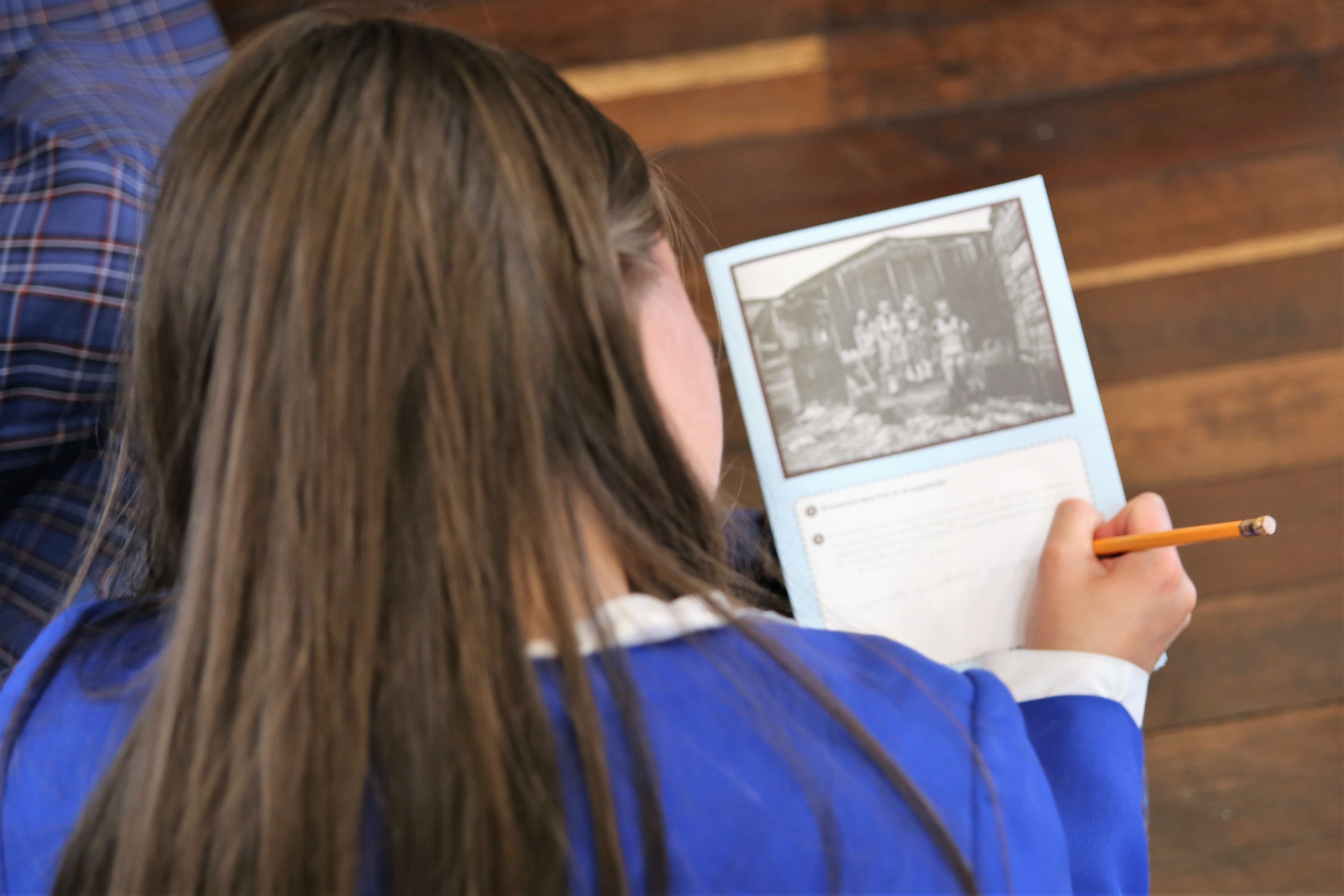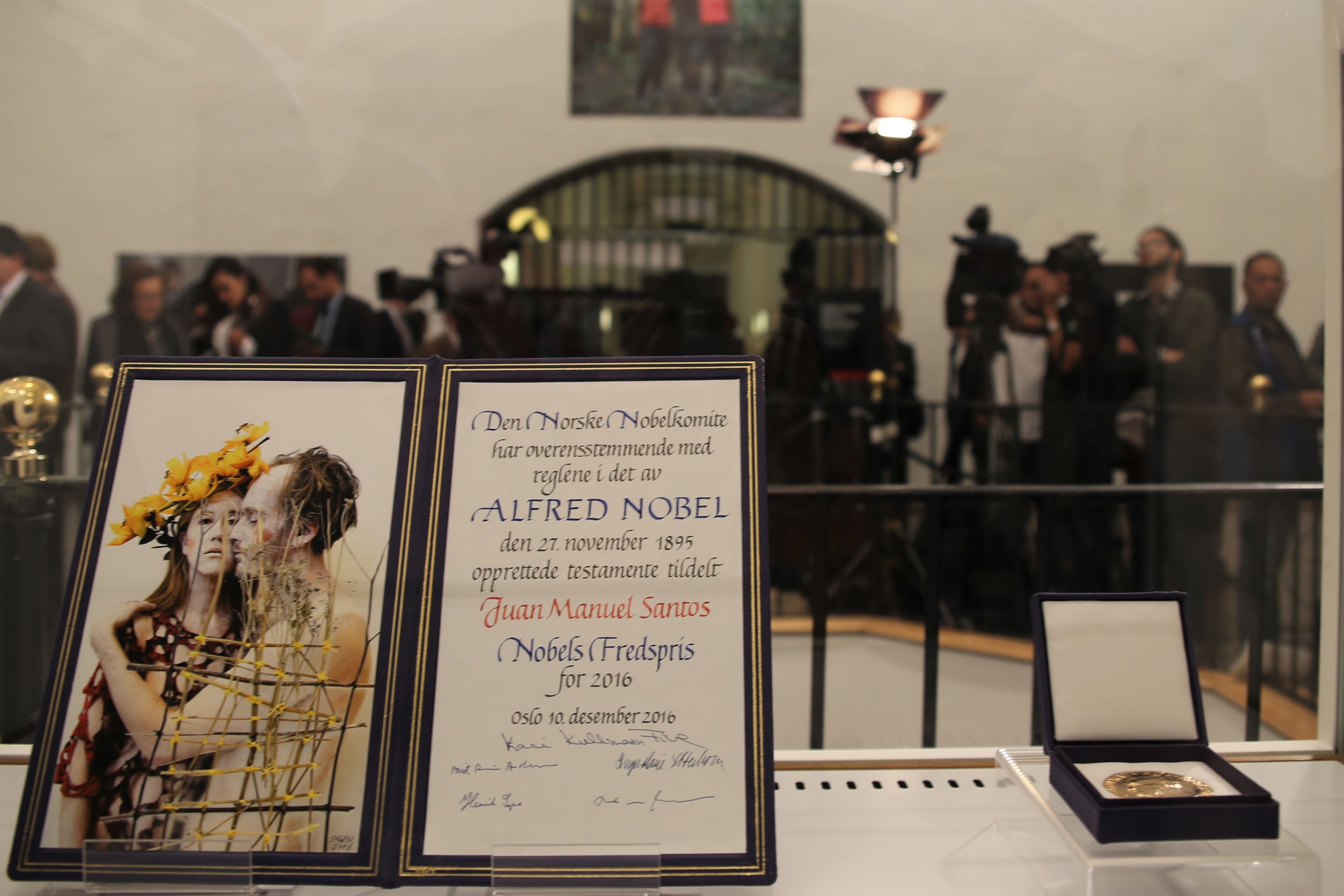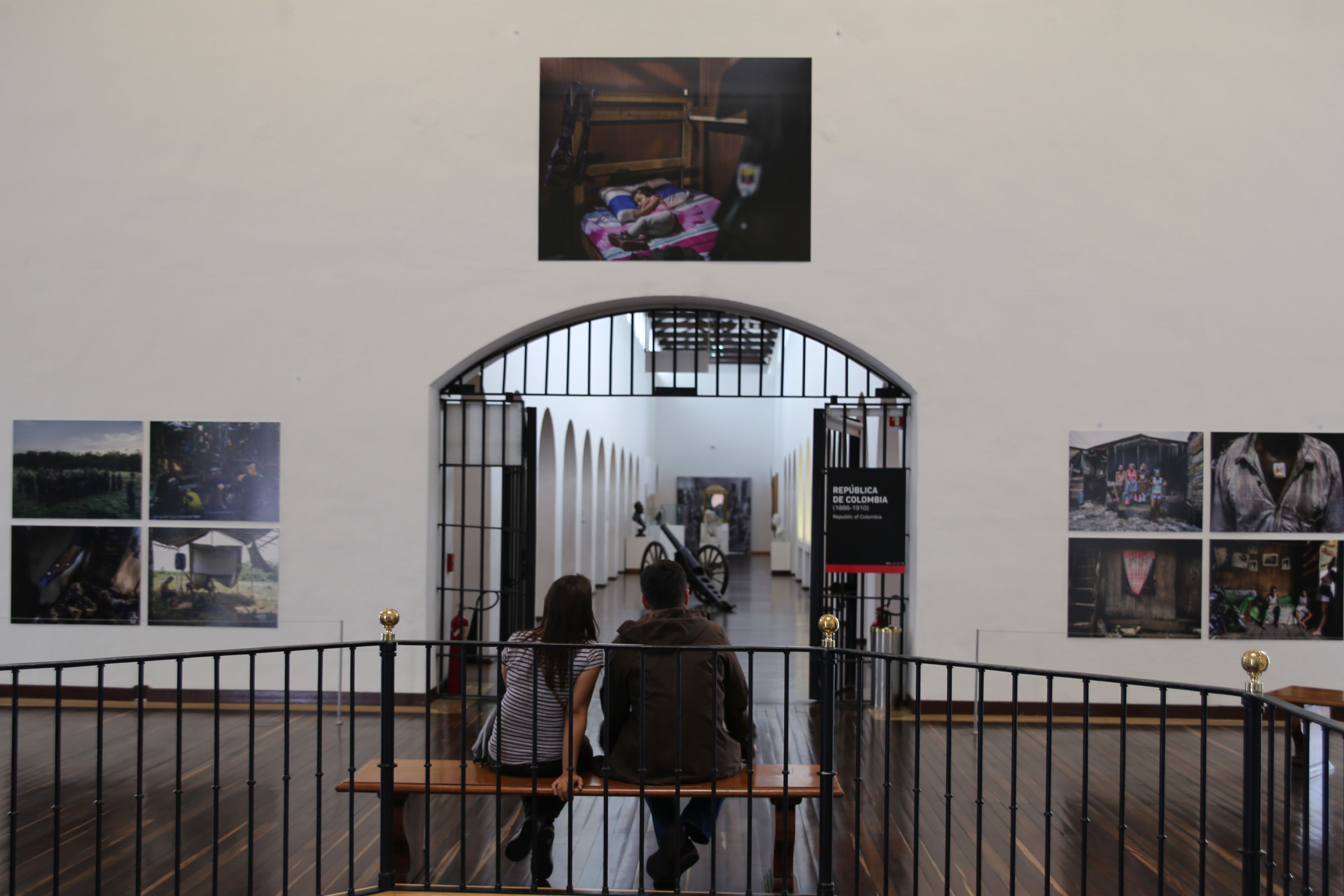Lessons from Colombia
The world has a lot to learn from Colombia. Right now, the world hungers for new solutions to peace and conflict resolution. I think we all feel that we are living in an unpredictable world.
We have more complex wars than we had a few decades ago. We have more humanitarian crises. And we have more refugees than what we have had in decades. Tendencies towards national protectionism and boosted militarisation add to the challenges. A shortage of peace means millions of people killed. It means 65 million people on the run as refugees. It means daily struggles for survival by the millions. Struggles to get food, toget into safety, to get education and to keep families together.
Conflict over Power
All the large wars in the world today have one thing in common: They have political roots. In Syria 2011, mass mobilisation for democracy spurred hard reactions from Assad ́s regime, which in turn caused broader mobilisation. The spiralling conflict soon saw interests buy into the conflict, and over the past few years we have seen the one conflict over power and resources turn into several simultaneous wars with regional and global interests involved. Today there are 5 million Syrians living as refugees outside the country borders, 6,5 million are internally displaced and more than 3 million live in areas hard to reach for humanitarian help. In Iraq, lack of reconciliation and dialogue between groups after the US/UK intervention in 2003 gave seeding ground for the establishment of ISIS. In South Sudan, a power battle within the ruling party SPLM started whatis now a civil war where both sides are accused of ethnic cleansing.
While these few words give only headline versions of the complex and often proxy wars we now find around the world, the truth is that unwillingness to share resources and power has started or contributed heavily to thewars we have today. The truth is also that the struggles and the pains of the millions will be multiplied in scars for a multiplied number of their descendants. My father told me stories about the occupation and World War II. The refugees of today will tell their children and grandchildren about their flight for years to come.
At the same time, our international institutions are struggling. The UN is impeded by disagreement among members, and the world is obstructed by renewed “East-West” tensions, new “North-South” strains, and repeated debates and controversies about the freedom of expression, the role of religion as well as the international responsibility to protect. At the same time, we experience regular terror attacks, growing fear in parallel with growing radicalisation and distrust.
Individual Decisions
We talk too little about peace. Well, at some level, there is talk about peace all the time. Everyone wants peace. At the same time, the forces that want conflict are obviously stronger. And the rest of us seem to believe that peace is outside our reach to influence the course of events. Yet, peace is made up of as many individual decisions as war is. And if the forces for war are strong, the forces for peace have to be stronger. Those who love peace must learn to organise as effectively as those who love war, said Martin Luther King Jr.
"World peace is coming, it certainly is coming, but only step by step."
Yet, anger is growing in parallel with inequality and a growing gap in resources. And debates seem to become increasingly deflated and platforms progressively partisan or biased. There is an urgent need for more dialogue, tolerance, trust-building and conflict resolution.
In a world like ours, we need to start investigating new additional and constructive platforms aimed at promoting dialogue and crosscutting cleavages. In 2016, Colombia was the shining star on a dark sky internationally. You showed us that it was possible to achieve peace. You showed us what leadership means. Because peace processes are always costly and risky, - few political leaders have gained personally onpeace deals. You showed us that political deals are essential even where military means are deemed necessary.
Your peace agreement with FARC showed the world, for the first time, what an agreement with respectfor the Rome Statutes would look like. And what restorative justice means. There is a saying that one should make peace with the ones one can when one can. And you did. It is easier to start wars then to stop them. Stopping them must be done step by step. And that is what you do. There are still massive challenges ahead, but you are going forward step by step and give us all hope.
Similar transitions
In South Africa, they also had a political negotiated transition. There are several differences between South Africa and Colombia, but also some similarities. Like you, they had world leading inequality. Like you, they had angry people taking up weapons to protest. And like you, they had decades of political strife, thousands of people killed and thousands in jail. The transition there was carried forward not by political leaders but bycivil society mobilisation. They negotiated a broad political deal, a Peace Accord whereby the parties laid down weapons, set up a National Peace Secretariat and local Peace Committees with the worrying parties represented. And the local Peace Committees had huge value in many of the most demanding times in the years to come among others when the ANC leader Chris Hani was killed in 1993 and the country was close to imploding. The Truth and Reconciliation Committee has also been regarded as international success story.
We can all learn from these experiences as we can of yours. Because these are demanding times when we need to harness existing success stories and rebuild on that basis.
Peace going forward
What do we know about international peace processes? Well, we know they are hard. President Santos has said himself that waging war is easy – building peace is much more difficult. And peace is not assured neither by a piece of paper, nor by a peace prize. Building peace is hard work. We know that peace processes are much easier to assure and maintain with economic growth. We are also getting increasingly aware that the distribution of that wealth is of key importance. If people do not have food on their table, no hopes for the future and nowhere to raise their legitimate demands, they get angry and lose faith in peace. They are learning that now in South Africa. They see it in other countries too. Lowering the wealth gap, creating improved political representation for the marginalised and giving the general majority, a real feel of peace dividendsis often unpopular with elites. That does not make it less important for peace-making.
Share:


